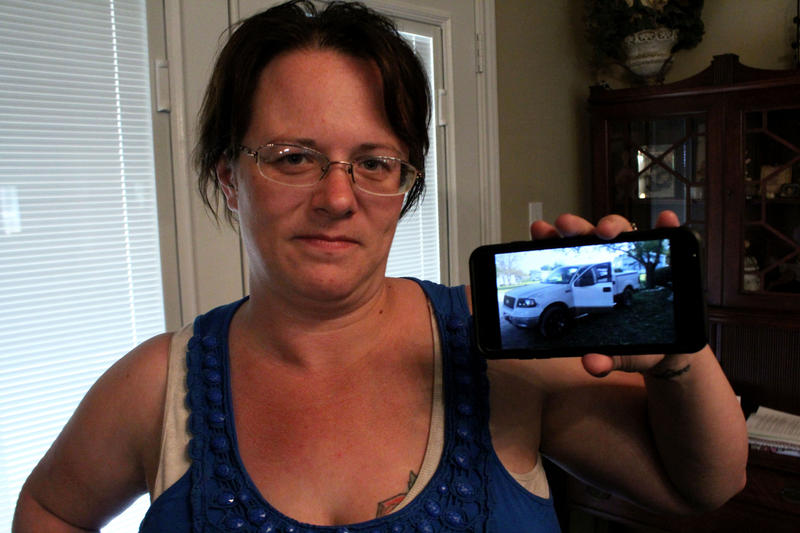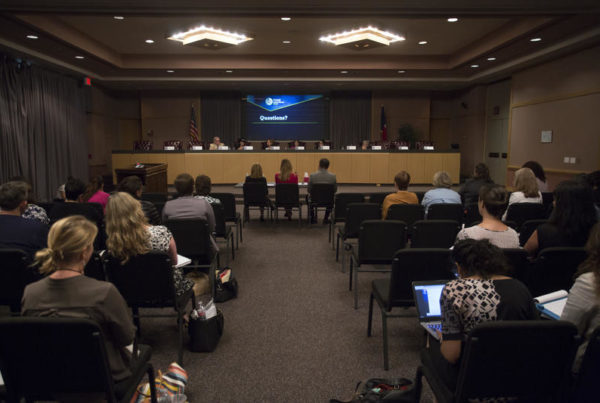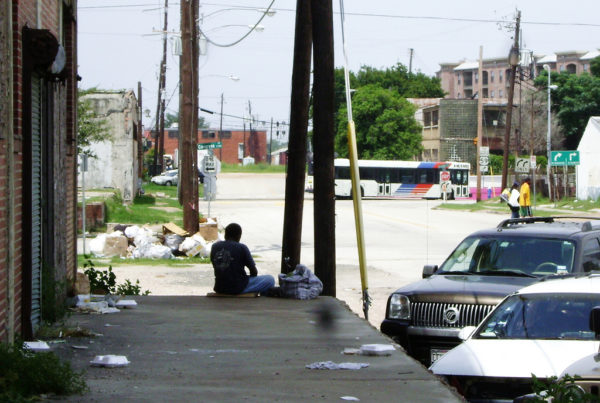From KERA:
Law enforcement groups call civil asset forfeiture a vital tool in the war on drugs. Critics on the left and the right say it’s a practice prone to abuse, and it needs to be curtailed. The process allows law enforcement agents to take property and cash they suspect is related to criminal activity.
Two states have banned civil asset forfeiture altogether and nearly a dozen have limited its use. This session, there’s a bipartisan effort to add Texas to that list, stirring a debate that raises questions about the balance of property rights and fighting crime.
Reform advocates, from staunch conservatives like Colleyville Republican Konni Burton to Democratic stalwarts like Senfronia Thompson of Houston, say the system creates too much collateral damage.
Crystal Greeson learned about civil asset forfeiture when it turned her life upside down.
‘Where’s our truck?’
January 7 started like an ordinary day for Greeson and her two young kids. Her family was staying at her father-in-law’s house in Forest Hills, just outside Fort Worth. In the early afternoon, she was helping her eight-year-old son get caught up on schoolwork.
Then, her phone rang.
“My husband called me and says he’s in jail,” she says.
He’d stolen some batteries and got caught. Cops found 14 grams of crystal meth in the family’s white Ford F-150. Greeson’s mind started to race. She was seven months pregnant, and this was the family’s only working vehicle.
“Where’s our truck?” she asked him. “He says ‘I don’t know,’ so I called the detectives.”
The Forest Hills police told Greeson she wouldn’t be getting the 12-year-old truck back. It was seized, and subject to forfeiture.
After a week, she was able to get her daughter’s car seat out of the truck. But everything else – two laptops, a tablet, some of the kids’ Christmas presents — was staying in the truck. Now, Greeson is getting money together to buy the truck back from the police.
“It makes me feel like I did something wrong, that I’m having to pay for it, that I’m having to spend this money to get it back,” she says.
Ten years in prison plus a Ford F-150
Greeson says she’s mad at her husband for running around with drugs. She blames herself, too for not knowing or, somehow, stopping him. He’d been in and out of jail, so she says she wasn’t totally surprised he’d bought drugs, but she didn’t think he was involved with that anymore. Still, she says, this forfeiture system feels unfair, like her whole family is being punished for the father’s crimes.
“Crystal did not marry a perfect guy,” says Steve Jumes, a lawyer who’s helping Greeson negotiate the truck buyback with the Tarrant County District Attorney’s office. “That imperfect guy is doing over a decade in the clink. And so do we need a Ford F-150, too?”
Jumes says Greeson’s case is an example of how civil asset forfeiture is too broadly applied.
Tarrant County District Attorney Sharen Wilson declined an interview, but her spokeswoman said in a statement that Greeson’s husband, David Brown, owned the truck, used it in a manner subject to forfeiture, pled guilty to drug possession and had a history of drug dealing.
Jumes says that’s all true, and that’s exactly why the laws should be reformed. He worked asset forfeiture cases as a federal prosecutor, and now fights them in private practice. He thinks forfeiture is a good tool; that there’s “a certain kind of poetry” in using ill-gotten gains from criminal enterprises to fight crime.
But he says it’s too costly and complicated to fight forfeiture, and case law stacks the deck steeply against property owners. Most of the time, he says, the best policy is just to buy back the property. Because it’s civil court, the cases drag on, and unlike criminal court, there’s no right to an attorney for those who can’t afford one.
In Texas, he says, that includes too many poor people who are caught up in a system designed to target big-time criminals.
“Everyone agrees El Chapo’s catamaran should be taken,” Jumes says. “ I think most of us are shocked they’re looking at Crystal’s truck.”
Lawmakers and law enforcement are split
Life without that truck was hard on Greeson. With her due date approaching, getting to doctor’s appointments was tough. A few weeks before her due date, her doctor ordered bed rest, but instead she was walking a mile each way to get groceries. Her feet got too swollen to fit into regular shoes.
“I felt like I had to push through to take care of these kids because if not, they would’ve starved,” she says.
















